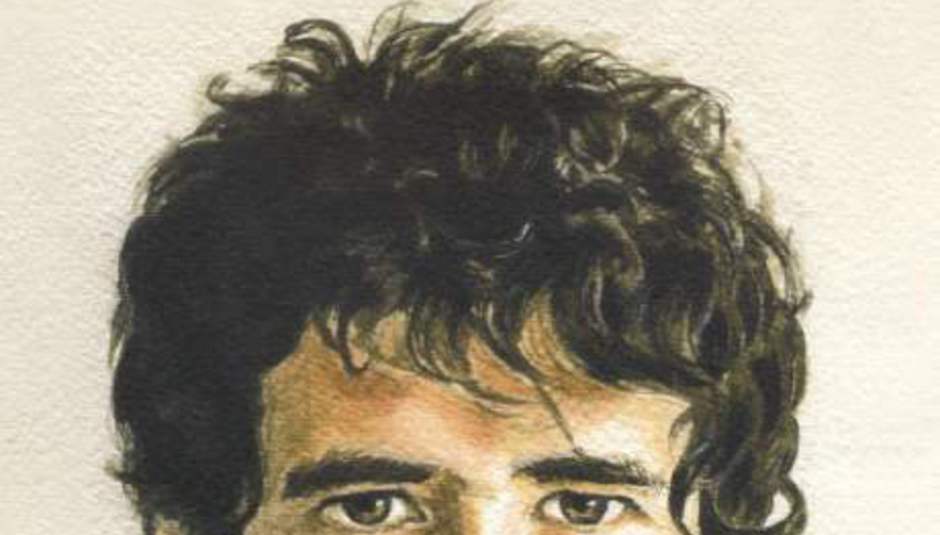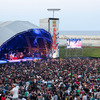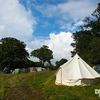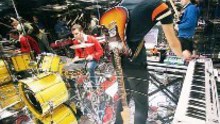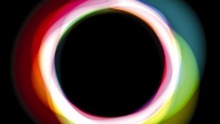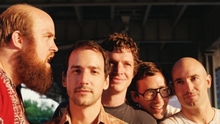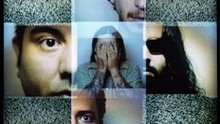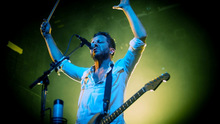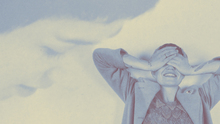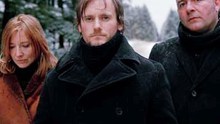"Stevie's full of good intentions," screams the penultimate verse of Belle & Sebastian's 'This Is Just A Modern Rock Song', and for a man who's collaborated with and contributed to so many other artist's projects, that description couldn't be more accurate. As one of the original members of Belle & Sebastian's transition from being a solo project for Stuart Murdoch to the bonafide group that's existed for the best part of two decades, Stevie Jackson has experienced more ups than downs, despite the fickle nature of the music industry.
Having initially started out as a member of fellow Glaswegian outfit The Moondials, Jackson hooked up with Murdoch in 1996 recording the band's first two albums Tigermilk and If You're Feeling Sinister the same year. His first attempts at songwriting with the band, 'Seymour Stein' and 'Chickfactor', both featured on their next record, the critically acclaimed The Boy With The Arab Strap. Since then, Jackson has contributed writing and arrangements to the majority of Belle & Sebastian's subsequent releases.
A self-confessed walking encyclopaedia of 1960s and 1970s pop culture, many of his songs containing less than obvious references to Rolling Stones lyrics (of which he'll discuss later on), Jackson has since worked with the likes of The Vaselines, Roy Moller and Bill Wells. Last month saw the physical release of his first solo album (I Can't Get No) Stevie Jackson. Originally out on digital format in the latter part of 2011, it features contributions from the aforementioned Moller and Wells alongside Rose Mellberg, Katrina Mitchell of The Pastels and fellow Belle & Sebastian members Chris Geddes, Bob Kildea and Richard Colburn.
A couple of hours earlier, Stevie Jackson played a rare solo performance at Derbyshire's Indietracks festival. Shortly he'll be back on stage again playing guitar with The Vaselines. In between shows, DiS caught up with him in the buffet carriage of an old locomotive...
DiS: Is this your first time at Indietracks?
Stevie Jackson: It's my first time, yeah. I don't know why? I guess I've always been busy, but it's somewhere I've wanted to come for a long time, just to hang out. I was quite excited when I got asked to play here.
DiS: Have you seen any bands so far? Is there anyone you're particularly looking forward to seeing later on?
SJ: To be totally honest with you I've not had chance to see anyone yet. I drove down this morning, got out of the car, played my set, went and sold some merchandise, ate a burrito, did another interview and met up with a few friends so I guess the next thing I should do is actually watch a band! If I get five minutes to myself I'll hopefully go and do that, although The Vaselines have just arrived onsite and I'm playing with them in a couple of hours. I think I've got half an hour between 8 and 8:30pm so I'm going to check out Rose Melberg, all being well.
DiS: I guess you could say that festivals such as this and ATP were spawned from Belle & Sebastian's Bowlie Weekender event in 1999. Do you and the rest of the band kind of take some of the credit for that?
SJ: I don't know about Indietracks but yeah, All Tomorrow's Parties completely 100% because it was our idea. Different promoters took it on and made it into a regular event so I think we'll definitely take the credit for starting that. Indietracks I'm not sure we can say the same thing, although when I walked into the church earlier and looked around it reminded me of one of Belle & Sebastian's earliest gigs. I couldn't quite put my finger on what it was but it definitely felt familiar when looking back on that period.
DiS: The first time I saw Belle & Sebastian was at Nottingham's Marcus Garvey Centre in 1998. Elliot Smith was supporting that night.
SJ: I remember that show, although not necessarily for the right reasons. The sound in the venue was far too echoey. It was a tough gig, definitely not one of our best to be honest. Going back to what I was saying about the church though, all of our early shows were like that. We played in cafes, book shops, mostly very small spaces. The whole idea was about drawing people in, and then when we actually got played on the radio and people started coming to see us, so we had to book bigger venues and the Marcus Garvey Centre was one of the first of that size we ever played in. It was tough going from playing to a maximum of 200 people to 2000+ all of a sudden. I think we learned later on how to project ourselves to a bigger audience, yet at the same time still retain a level of intimacy.
DiS: Your first solo album (I Can't Get No) Stevie Jackson has just been physically released at the end of May. When did you decide to make a solo record and how long did it take to complete?
SJ: It was always something other people said I should do rather than something I wanted to do. It's always been in the back of my mind but I've never really felt that burning desire to make a record. I think it was just ten years of doing Belle & Sebastian; I've always been committed to that 100%; so the main reason it never came about was because I didn't have enough time on my hands. We took a hiatus in 2007. I think there was a sense of "we've been doing this for ten years, let's leave it for a year or so." Not split up or anything like that. Stuart (Murdoch) had his God Help The Girl project going on, and I actually had the chance to do other things for the first time in over a decade. So I started doing art projects with friends, and from that we wrote some songs together, mainly for a laugh. We had a little songwriting collective called The Company. It felt like being a teenager again where you hook up with a couple of school friends and start knocking out songs for the first time. They're not like relics from any backlogged chain of events. They were written quite quickly over the space of a year, and one day I thought I'd try and record them. I think a couple of them we tried recording with some of the band, 'Try Me' and 'Where Do All The Good Girls Go?'...
DiS: It's interesting you say that because for me, those two in particular are the most typical Belle & Sebastian sounding songs on the record.
SJ: Sure, I can kind of see that. Sarah Martin and Bob Kildea from Belle & Sebastian are on both. After we finished those two we recorded a few more. It wasn't as if a lot of time was spent on the record. We did some of the recording in 2008, then a few more in 2009, and at that point I remember thinking, is that a record? And then I got distracted and just left it because Belle & Sebastian had started again until about a year ago when I recorded a couple more songs. So then I had twelve songs which was enough for a record and at first I put it out online until last month, when it became available in the shops.
DiS: Songs like 'Richie Now' and 'Dead Man's Fall' seem very personal, almost in a biographical sense. Particularly the former and the way it references certain Beatles songs and albums.
SJ: 'Richie Now' is, definitely. I mean, not all of the songs are like that. There's a mixture of things on the record. I think it's OK to write those kind of songs every now and again, but I'm not a huge fan of that confessional kind of songwriting either. I mean, I like listening to Joni Mitchell singing about having affairs with other singer/songwriters and then the subjects of her songs writing about her in return. I prefer the idea of art projects as intellectual exercises where you kind of make something up, but the actual irony of it is when you do that everything kind of becomes personal anyway, even if you are approaching something from an abstract angle. For example, one of the songs on the album is called 'Just, Just So To The Point', which was like an intellectual exercise. I was with my friend Nicola, and she just went, "Right, who are your five favourite movie directors?" and I was like, off the top of head... John Huston, Martin Scorsese, Ingmar Bergman, John Cassavetes, Akira Kurosawa. And then she said, "Now give me one line why you like them." So I started with John Huston and I said, "He's just, just so to the point," and she replied "Now write a song with that title!" For me, that's the kind of intellectual exercise I was talking about, but then looking back a lot of that song ended up being quite personal anyway. 'Dead Man's Fall' originates from The Company, which was me, Gary Thom and Roy Moller. Believe it or not we just made that song up for a laugh! We were all just throwing lines out, and it's quite funny now because that song really means a lot to me, even though it's not specifically personal in any way.
DiS: Do you take a different kind of approach when writing songs for your self than the one you would with Belle & Sebastian? Is there a different set of emotions running through what you do for example?
SJ: Nah, not really. You can't relax as much. It doesn't bother me. When I first met Stuart Murdoch I was helping my friend run this open mic night in Glasgow, and some nights you'd have these complete lunatics turning up, so having to deal with all these people kind of gave me first hand experience of what it would be like working with or playing to large groups of people. Experiences like that don't phase me. I feel comfortable when I'm on stage and the same when I'm writing. Initially with Belle & Sebastian, Stuart would be busy fumbling and trying to change his guitar and there'd be this shambolic indie thing going on, so I used to talk to the crowd in between songs a lot to fill in the empty spaces. In recent years we've come on so much that my role is now in the band predominantly involves just playing the guitar. But yeah, in answer to the original question, being solo doesn't phase me so I wouldn't necessarily feel the need to change my approach. Unless I'm playing a show and someone's throwing things at me anyway!
DiS: Does it worry you that people might only show an interest because they see it as Stevie Jackson from Belle & Sebastian rather Stevie Jackson solo artist?
SJ: No, I completely understand that. Without the band I may not have been in a position to make a solo record, so in that way it has to be an advantage. The thing you have to remember about Belle & Sebastian is that we're a collective, and although Stuart perhaps gets most of the attention being the lead singer and main songwriter, I'm an original member as well. I've been through the whole thing from the very start so it's kind of a part of who I am anyway. I don't really separate what I'm doing on my own from what I've done with the band that much. It's not like I'm in competition with or overshadowed by it. It's just another side to who I am really.
DiS: You've already touched on some of the collaborators who form part of The Company, but aside from Gary Thom and Roy Moller, there's an impressive list of artists who've contributed to the album like Katrina Mitchell from The Pastels, Rose Melberg, Bil Wells, and some of your colleagues in Belle & Sebastian such as Chris Geddes, Bob Kildea and Sarah Martin. How did they all come to be involved?
SJ: They're all friends who I was able to gather together when I was making the record. I get bored really easily and my idea of making a record is to phone people up and get them down to the studio and teaching them a chorus or something. It all came out of that really, just that sense of capturing a moment. Bill Wells is possibly the best bass player in the world, Katrina (Mitchell) is an awesome drummer too. As is Alex Neilson who's played with Trembling Bells. He drums on four songs. His improvisational background is simply amazing, just watching some of the fills he puts in. I guess you could say the main difference between making this record and what I've done in the past with Belle & Sebastian is it was more spontaneous. It was more about throwing a group of people together in a room and seeing what we came up with.
DiS: Do you see your solo career taking precedence over Belle & Sebastian in any way, similar to when Stuart David left to concentrate on Looper for example?
SJ: No, not really. I would never describe what any of us do as a career. Belle & Sebastian is my life rather than my career. Having a career is another way of saying you're making a living, and while we've been fortunate enough to make music on a full-time basis I wouldn't class any of us as being particularly wealthy or career-minded in any way. The solo project really was just that. It was something I did on the side which I paid for myself. I guess people's perception can sometimes be that making a solo record is a way of carving out a career. With Stuart David, he's a genius. Everything he's been involved with has ended up being extraordinary, whereas with me I think I've made a reasonable first record.
DiS: Will there be a tour to promote (I Can't Get No) Stevie Jackson?
SJ: I doubt it to be honest. I'm not sure whether there'd be much of a demand? The world seems to have grown up now. A lot of Belle & Sebastian fans from the early days have got kids and families of their own, so I'd be conscious of them having to get babysitters just to come and see me! You know, asking all their friends to babysit while they go and watch the guitar player from Belle & Sebastian. That's why I'd rather play shows like this. Start from scratch and just try and build it up rather than put together a tour.
DiS: One song that really stands out for me on the album is 'Telephone Song', which seems to be a collection of emotions ranging from regret and self-reflection to guilt and paranoia. Where did the initial inspiration come from when writing 'Telephone Song'?
SJ: That's actually the oldest song on the record. It was written a few years before most of the others. I was sat down with a pen thinking about this beautiful girl who I really liked at the time. I was deliberating whether to ask her out but I wasn't going to phone her! So I started jotting all these different emotions down on a piece of paper next to a picture I'd drawn of this pretty girl. A lot of them were perceptions I had; money, style, friends, work, music, sex, art. Then it became a second list with emotions like guilt, fear, jealousy, regret. Then I picked up my guitar and started singing and it somehow kind of worked. I referenced The Beatles in the chorus. "I carved your number on my wall" is taken from 'If I Needed Someone To Love'. Most of my songs are full of references!
DiS: You're said to be a walking encyclopaedia of sixties and seventies pop culture.
SJ: Everything I've written with Belle & Sebastian has at least one Rolling Stones reference in it, whether it's a lyric or a melody or a chorus. 'Chickfactor' mentions 'It's The Singer Not The Song' in the first verse which is the b-side to 'Get Off Of My Cloud', and then further on I mention 'The Spider And The Fly' which is the b-side to '(I Can't Get No) Satisfaction'. The guitar part at the end of 'Photo Jenny' references Glen Campbell's 'Wichita Lineman', and I thought no one would recognise it until Roy Moller noticed it a few years ago. He's as bad as I am!
DiS: What are the future plans for Belle & Sebastian? Is a new record in the pipeline?
SJ: We haven't got any at the minute. I think we've gradually learned to pace ourselves. It slowly dawned on us that we couldn't just rush from album to album every year for various reasons. We're all involved in various other projects and we're getting older. It's good to be able to go off and do other things. It would just be boring otherwise. Nothing's wrong, it's all quite deliberate. We haven't written anything in over a year but Stuart's making his movie. In fact he starts tomorrow, directing his feature film. I'm assuming that production, marketing and post-production with that will take up the rest of this year, so I wouldn't expect any new material before 2013 at the earliest. There may be some shows next summer, we'll see.
DiS: You've already done a Don't Look Back performance for If You're Feeling Sinister. Is it something you'd consider doing again in the future, maybe with Tigermilk for example?*
SJ: I don't know whether we'd do it again to be honest, although Tigermilk is my favourite Belle & Sebastian record. It's a bit weird doing that kind of show because it's not as if we've split up and reformed or anything, and we still play some of those songs in our live set anyway. Maybe we should have just split up and reformed? We'd probably have made some money that way! I'm not against it or anything, but I don't see the point in us coming back to play shows without a new record, if that makes sense?
DiS: You've mentioned you're also playing with The Vaselines later. How did that collaboration come about?
SJ: It actually started out as a one-off. Eugene Kelly and Frances McKee were playing separately at this event in Glasgow, and Eugene said they were going to do some Vaselines songs together so why don't I go on stage with them. He asked me, Bob (Kildea) and Richard (Colburn) from Belle & Sebastian so we did it and absolutely loved it and the next thing you know, four years later they're touring the world. I haven't played every show with them. They have a team of people they can draw from depending where they are at the time. Two guitarists, two drummers, two bass players. I haven't played with them for a long time actually because I was busy with Belle & Sebastian last year. It's good fun. I get to do things that I wouldn't normally. It's not often you get the opportunity to play too much controlled feedback in Belle & Sebastian!
DiS: Finally, the annual Indietracks mixtape swap has been cancelled this year due to complaints from artists over copyright issues. What are your thoughts on this?
SJ: I think that's really shortsighted myself. That's how many artists get any kind of recognition in the first place. People exchange mixtapes, other people get into their music and ultimately end up buying the records. Without that initial mixtape their music may never get heard. That's how I discovered most of my music when I was a kid.
The album (I Can't Get No) Stevie Jackson is out now on Banchory Records.
For more information on Stevie Jackson visit his official website.

